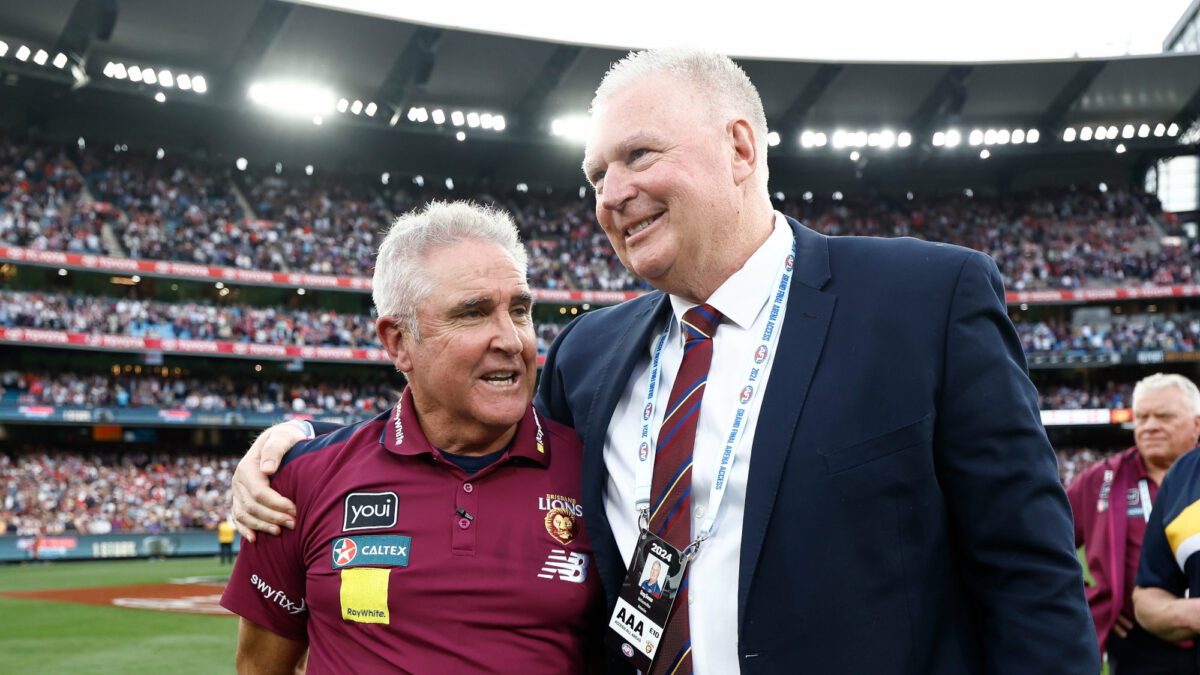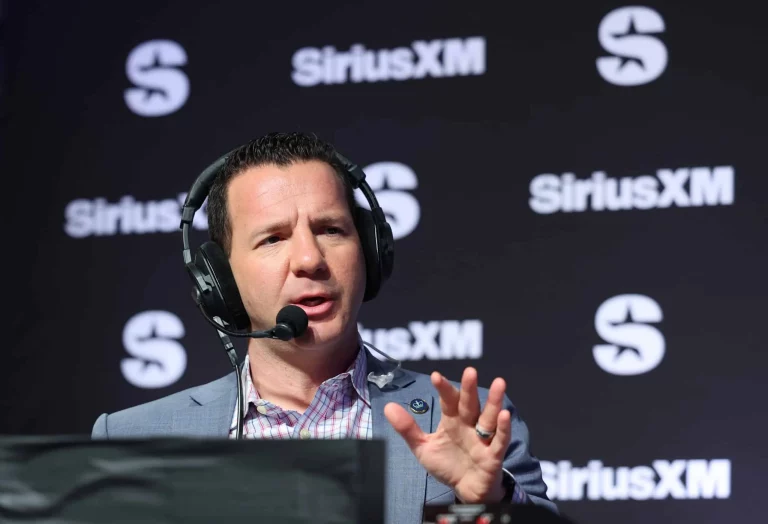Forget Collingwood’s senior citizen revenge on the field: ultra experience is now the buzzword off it, too.
The appointment of Brisbane CEO, and one-time Collingwood and Carlton boss, Greg Swann as the AFL’s new football supremo triggers several talking points.
The one that matters most is that Swann comes to the role having spent the last 26 years heading up AFL clubs, who can no longer accuse head office of not understanding the pain points of footy at the coalface given Swann has lived it longer than just about anyone else in the game.
Laura Kane’s appointment to the original, bigger, role was brave, progressive and perhaps in any other type of industry, correct; yet ultimately there is a sense clubs will take a deep breath this week knowing Swann is taking their calls after the last 12 months of agitation.
The bigger and more sophisticated the industry has seemingly got, the more it has valued and reverted to a safe pair of hands.
While some have pointed to underlying sexism amid club criticism of Kane, more acknowledge that her age and industry knowledge, or lack thereof, were the tougher sell in instilling confidence.
That is a seismic change from what once was.
Swann was 37 when he became CEO of Collingwood.
In the years that followed, Andrew Demetriou became AFL CEO at 42 and put together a senior executive team in their 20s or early 30s, such as Gillon McLachlan, Andrew Dillon and David Mathews, the current GWS CEO.
Adrian Anderson was appointed footy boss – he was younger, and with less industry experience, than Kane had coming into the role.
While Swann seems like an incredibly logical and very good choice, that the league had to go to someone in their 60s, who in other industries may be looking to scale back their working commitments, speaks to a mixture of complexity and conservatism that has made it terribly difficult to develop leaders in the game.

Former Brisbane CEO Greg Swann (right) with coach Chris Fagan after the 2024 grand final. (Photo by Michael Willson/AFL Photos via Getty Images)
Perhaps the most decorated CEO in the game, Brian Cook, is finally exiting, post-70. Peter Jackson has retired twice after stints at Essendon and Melbourne and has passed 70, yet would seemingly still pick up a CEO job if open to it.
These people are seen as the best in the business. They were also seen that way 25 years ago.
This is not a knock on the Swanns, Cooks and Jacksons of the world. If I was on a board, I would be hiring them too.
The AFL’s early-season issues all seemed to revolve around not having a wise head in the room, so of course these types would be in demand.
But it’s an indictment on what sits below the age of 50 in football, and in the broader sports industry.
Privately and publicly, Jackson has for years warned that CEO material was thin on the ground, and there was a black hole of leadership talent approaching.
Jackson doubled down on that to Caroline Wilson in The Age 18 months ago.
“Andrew Dillon knows what I think, Gillon McLachlan knew what I thought,” Jackson said.
“It’s been coming for 15-20 years. People like Swann and I have been warning them for a long time.
“Do you want an academy or some sort of industry university? We don’t put any money into that and we reap what we sow. It’s enormously frustrating.”
It’s a problem that is not necessarily limited to football, and it’s not right to blame those under 50 for being a bunch of underachievers.
Sports administration has its cycles; the television rights explosion at the start of the 2000s grew staff levels exponentially but also pay packets and cachet. Suddenly sports administration jobs were highly sought and, tellingly, clung onto for dear life.
If you were a young person aspiring to a career in sport, you were born at the right time to get a job, but at the wrong time to progress.
Between the age of 24 and 34, I primarily worked in the sports industry, including more than seven years at Cricket Australia and the AFL.
The roadblocks to progression were ever-present and at one workplace (not the AFL) it was intimated that they were unfussed about seeing young talent walk away because there would always be someone itching to take that spot.
Of the many very talented and hard-working people of my generation, the ones who should be lining up to be CEOs right about now, most have left the sports industry altogether.
If not bitter and disillusioned, most have no interest in returning to an industry that asked the world of them from a time perspective and gave very little in return as far as progression and development.
The frustration when people were continually plucked from consulting firms for plum jobs over those that have slaved away in the trenches was palpable. The view of many of my generation is that they should have ignored sport until they hit 40 – only then would they have been given a real opportunity.
It’s hard to think of any that have progressed to CEO level, besides outliers like Tom Harley who came with an AFL premiership captain’s point of difference and was, rightly as it has proved, fast-tracked into the AFL NSW CEO role.
Sam Graham, who will take Swann’s role at the Lions, is another ‘survivor’, but has travelled a long and winding road across three states to get to where he is now.
Fast-tracking of those in their early 30s should have been in play to develop another 20 Harleys. The cumulative effect has been a lost generation of sports administrative talent, who invested years gaining that elusive ‘industry experience’, the great stumbling block of today’s administration, only for it to wither away.
Just like on the field, the ‘old man’ is king in 2025.
History says Swann will do a great job and further strengthen the ‘experience counts’ mantra.
But what happens next?







